|
Being Holy Week, let's allow the art of German priest and artist, Sieger Köder (1925-2015), to lead us in meditation. "The Eucharist" or "Communion Table" is the subject for these two paintings that will receive our contemplative gaze.
Look closely at the first, depicting Jesus and his disciples at the Last Supper found in Mark 14, Luke 22, and John 13. Look: What or who catches your eye? Let your eyes rest there for a moment. Notice: What stirs in you? Feelings, bodily sensations, thoughts/questions/curiosities... Ask: "God, what are you saying to me through this painting?" Listen: Pay attention to any words, images, memories, scriptures, songs, feelings, etc. that may arise. You might choose to journal. Now look at the second painting below with those from the 1940's WWII-era with the risen Christ. A Jew, prostitute, beggar, clown, scholar, rich woman (maybe a widow), and wounded African guest worker with Nazi concentration camp pajamas have been invited (and have come!) to the table. You might repeat the above questions or focus in on a particular person at the table. Look: Who catches your eye? Or, who do you most identify with or feel resistance towards? Notice: What does this person stir in you? Feelings, bodily sensations, thoughts/curiosities... Ask: "God, what are you showing or saying to me through this person?" Listen: Pay attention to any words, images, memories, scriptures, songs, feelings, etc. that may arise. You might choose to journal. Now let both paintings dance together. What do you notice? Is there a theme in what is being communicated to you through the paintings? Are you aware of any invitations? Like parables, Sieger Köder's paintings contain many layers of meaning. There are endless ways to engage them, like entering one or both of the paintings through your imagination as an observer, one who joins Jesus at the table, or is the face of Christ for those present. What happens next? Whatever happens next, may your time at the table speak to your soul and lead you further on the path of and toward Life.  This may be figurative for you as in, “There’s no going back to church as it was before the pandemic.” Or it may be literal, as in, "I'm not going back…period." I have heard both. Pastors and parishioners come to spiritual direction wrestling with what the future looks like for their particular church and the Church as a whole. Others come with the discovery that church attendance was part of a checklist they found relief from during the pandemic when it was no longer something they “had to do” because they couldn’t do it! But things are beginning to open up. As more people receive vaccines and mask-mandates are lifted, some are feeling a growing pressure to figure out what they’re going to do when it comes to church (this includes pastors!). Some tell me how much they miss being with their congregation and cannot wait to go back to in-person worship without the worry of virus spread. While these folks have regularly tuned-in to online worship, just thinking of returning to the building brings joy. It will be a type of homecoming to a family and place they long to see and be. Yet this is not the sentiment of everyone. Two months into the pandemic, a long-time church-goer said to me, “It’s astounding how little I miss church. That's definitely saying something to me.” This person regularly comes to spiritual direction and regularly helps those in need, yet they have experienced a growing disconnect with their church over the past few years. The pandemic only heightened, or brought to the surface, what was covered by obligation and comparison. While those around them seemed to be enjoying and feeling nourished by the Sunday morning service, everything felt forced and inauthentic to them. In spiritual direction they recalled continuously leaving spiritually starving and angry. They recounted every positive-thinking, heart-opening spiritual practice they have tried…and nothing changed. Their discontent and disgust just grew. The pandemic was in some ways a grace, offering a break from the inner turmoil of whether they should stay or leave. Overly-simplistic truths like “Church is the people not the building” offer little help because church and church-going can be complicated depending on one’s personality, childhood, personal beliefs, and present experience of church-going and church-people. I know this, because I, too, have wrestled for decades, and continue to wrestle, with all that is intertwined with church/Church. It’s been a long, liminal space for everyone. This threshold, or in-between time, can lead to deep questions or the acceptance of a clarity that has been clouded over by a sense of coerced duty and/or loyalty (whether the pressure comes from within or without). Could leaving church actually be a sign of spiritual growth? It just may be. My directee craves more than their congregation can offer. They want to go places theologically and spiritually their congregation is unwilling—perhaps unable—to go. Conversations have failed to lead to Shalom (peace and wholeness). Even after many years, they may need to heed Jesus' call in Matthew 10, to “shake the dust from your feet” and leave. No need to demonize the pastor or congregation, it’s simply time to move on and continue one’s journey on and toward the path of Life. It’s not easy. There’s no one-size-fits-all way of leaving a place and people one had hoped would be life-giving. It requires a lot of trust. As my directee has wrestled with their discernment, I have never given them reasons to stay or leave or suggestions on how to stay or leave. I just listened. Ways of wisdom always arise as we release our stranglehold and wait for God's guidance (for the Holy Spirit is the true Spiritual Director, after all!). So whether you are joyfully anticipating resurrection through returning to a beloved congregation or grieving the realization that you need to let something die for belovedness (including beloved community) to be born again, spiritual direction is a safe place during the in-between. In spiritual direction, you will find permission to let your own inner wisdom be your guide. Allow the feelings of pressure and dread to speak. Listen to what your body has to say. Pay attention to the images your soul is offering. Become aware of patterns in the ways God has been at work in your own life story. For God has been and always will be fully present to you and in you. The fullness of God's presence is equally with the person who worships in a church building (with 15 or 5000 people) as with the person who worships in ways that do not include a church building and its congregation. To a group of young men, 13th century mystic, scholar, and Dominican priest, Meister Eckhart, said: "Whoever truly possesses God in the right way, possesses him in all places: on the street, in any company, as well as in a church or a remote place or in their cell…” (Walshe, 2008, Talks of Instruction, 6). He also once said, Some people prefer solitude. They say their peace of mind depends on this. May the wisdom of Meister Eckhart give us the boldness to listen to our own—and to stay and leave as the Spirit beckons.
I told a friend the other day that as more political signs go up around me, the angrier I become. Most assuredly I wouldn’t be as angry if they aligned with my own ideology…how telling! My reaction reminds me of the immense draw to live on the level of agreement. Do I agree or disagree? If the latter, criticism comes quickly followed by detaching from the author, politician, doctor, Facebook friend, family member, neighbor…write them off…case closed, act as if everything is fine. But this kind of dissociation never works for me in the long run. It's not case closed. Pretending, ignoring, and stuffing feelings ultimately turns into back pain and headaches which is not loving myself (which then leads to the inability to truly love my neighbor). See last week's post for more on loving oneself. The growing rift, polarization, and lack of neighborliness leads me to ask, “Who is my neighbor?” I can’t help but think of Jesus’ parable of an enemy coming to one’s rescue in a time of need (see The Good Samaritan). Or his words in the famous Sermon on the Mount, “You have heard that it was said, ‘Love your neighbor and hate your enemy.’ But I tell you, love your enemies and pray for those who persecute you…" Matthew 5: 43-44 Ugh. How do you actually do this? Realizing that we see our own reflection in the faces of others—both the shadow and the light—can add to the pressure. The shadow within is hard enough to face, it can be twice as hard when I see it in the face of others (if I’m even willing to admit I do)! Who wants to admit that the narcissism detested in someone else can be a mirror reflecting the narcissism residing within one's self? Note: This doesn’t excuse or downplay the narcissistic actions by the other. When Jesus boldly expanded on his Jewish lineage saying that not only are our neighbors those who belong to our family/group and those on the margins of our family/group, but so are our enemies, it must have stunned his audience. Even though it was consistent with his teachings about the Kingdom of God and his prayer that life on earth reflect life in heaven, we sadistically like the idea of some people not being included. But the love of God includes everyone. Jesus reminds his listeners, right after telling them to love their enemies, that God sends rain for those who do right and those who do wrong. And like the moon reflects the sun, we're to reflect God. So how do we integrate the shadow and light of others, especially that of our enemies? And why should we even try? When it comes to why, enemy-hating takes up a lot of space in our inner world. It crowds out what is life-giving. Jesus knew the fruit that hate bears. It depletes our inner energy and resources, crippling our ability to live a life of Love within and without. “Hatred destroys finally the core of the life of the hater…hatred tends to dry up the springs of creative thought in the life of the hater, so that his resourcefulness becomes completely focused on the negative aspects of his environment.” Whoever we hate holds power over us. When we release the hate, we release their power over us, and free up that energy to love. Hatred, like love, may start out small (one act or one person), but it quickly overflows into everything and everyone.
So again, what are we to do? How can we begin to release criticism, anger, and hate? Since curiosity is helping me release the anger and criticism toward myself, I’ve been experimenting with curiosity in the shift toward loving my neighbor/enemy. What might happen if I chose curiosity over criticism with my "neighbor"? Another political sign went up, this time with a flag on the porch of someone I’ve never met. Going past their residence, I looked at the signage and their house with curiosity:
After a few wonderings & questions (without providing hypothetical answers!), I found my face softening and a willingness to actually have a real conversation rather than a hardening and hiding in my anger. Honestly, I was surprised. I experimented with a friend when the conversation turned to politics and we wanted to criticize a group of people. When we shifted to curiosity, the critique faded. Surprise again! The most recent opportunity happened when someone disagreed with my schooling choice for my kids. I asked some questions instead of focusing on defending myself. They began asking questions. We left the conversation still having differing opinions, but smiling and looking forward to future conversations. Curiosity may be the spiritual practice for this season. May it be a step on the path of peace, a way of wisdom, a beginning in embodying the love of God, especially toward all of those putting up political signs! What happens when we discount small actions or fear the possibility of humiliation?
We may not act at all. When we embrace both, we’re free to act. Any life-giving act, no matter how small, matters. According to Jesus, the Kingdom of God is like a mustard seed someone planted or like yeast a woman worked through a large amount of dough. Both the mustard seed and yeast required action from someone to bring about their potential. Both seed & yeast, the required action, and even the people may seem small and even hidden. Both may be small and hidden, but some actions require more (planting a seed is easier than kneading yeast through 60 lbs of dough!) Both contain big potential to benefit an entire community, offering nourishment in a variety of ways:
All of this from two small actions! If we're going to be sowers of seed and kneaders of the Bread of Life, know this... Action is never humiliation-proof. According to Fr. Richard Rohr, we're to pray for one good humiliation a day! What a way to stay humble and inevitably learn that humiliation is often a gateway to transformation! I promise you, especially if you, like me, are White (& an Enneagram One), it will happen as you enter into the on-going work of antiracism. Last fall, my daughter and I went to a weekend seminar to hear Nobel peace prize nominee, Fr. John Dear, talk about “Jesus as Peacemaker.” It’s been a constant part of our conversations ever since, becoming richer with insights from others. Earlier this year, Abby Buter pointed out the difference between being a “Peacekeeper” and a “Peacemaker” during the “Meditating with the Aramaic Beatitudes” class. The distinction is important…Jesus was the latter & said it’s the latter who are blessed. Fr. Dear gave my daughter a new language of nonviolence and she’s been quick to point out when I’m not (& other Christians aren’t) following in the footsteps of the nonviolent Jesus…oh the blessings of having a teenager in the house! But she’s right. And having it pointed out can be humiliating. When my children saw the video and photos of George Floyd, they were distraught. The conversation around Jesus and nonviolence needed to be taken to the next level. I decided to begin with my own faults and humiliations so they would learn not to fear their own. Around the dinner table, I told them stories from my own life of how I have thought, said, or did things that contributed to racism and upheld racist beliefs and systems. We talked about the reality of having inherited racist ideas as a culture and how Western Christianity’s own “superiority complex” has added to the problem by often making us overtly or covertly feel like we are definitely on the “winning team” and others are not. I told them of when I was a youth pastor and met with a community organizer after having spent time in Mississippi with Dr. John Perkins who encouraged me to do the same kind of community and racial reconciliation work with our students in our Missouri town rather than go elsewhere. Conversations with a couple of Black pastors in the area led me to talk to the Black community organizer. After telling him what I wanted to do, he laughed, and I felt humiliated. He pointed out how it was fine that I wanted to bring my students from the north side to the south side to help paint or whatever, BUT, it still didn’t change the fact that what the predominately Black kids on the south side were using as a community center was an old building that no one else wanted (but the kids were still happy to have) while the predominately White kids on the north side enjoyed a brand new top-of-the-line sports complex. It was an eye-opening conversation. Noticing my humiliation and naivete, he said, “I like you” then continued to challenge my White privilege. Doing “good work” and being a “good person” weren’t enough. At the end of our time, he still put me in touch with those who could help me line up service projects and then he sent me on my way (which included crossing a threshold I had no idea I would be crossing when I first walked in there). It was later that I could see how he was trying to open my eyes to the larger systemic problem of racial inequality and the problem of “White Savior Complex”--- our White Christian youth group would feel good about “helping” but the larger problems would still exist after we left (& in some cases our help would further uphold the problematic systems). Looking back, I’m grateful for the humiliation! Why?
Last month the opportunity to join an online discussion group facilitated by a Black friend from high school on the book, How to Be An Antiracist, came up. Aside: I've enjoyed listening to author, Ibram X. Kendi, read the audio version; often my kids listen, too. I knew a good humiliation (or more!) would come as I listened, shared, and became even more deeply aware of my ignorance both in high school and now (i.e. How did I not or how have I continued to not see, know, or consider this before?). However, experience tells me that humiliation need not stand in the way (and often is the way!). Do the conversations with family, friends, and neighbors matter? Does the discussion group matter? Refer to Jesus’ parables on the mustard seed and yeast. ______________ Two resources for ongoing learning, awareness & action:
What do the Coronavirus and the Reign of Love Have in Common?: A Facebook Post from June 27th7/7/2020
Facebook's "what's on your mind?" prompt has been taunting me, so here's what's on my mind. It begins with a conversation...
“You know what’s strange? Most people I see who aren’t wearing masks are Christians,” a friend who was standing over 6 feet away said to me. We both shook our heads. Interconnected. That’s what we are with everyone & everything. In not recognizing it, we are what the prophets lamented, “foolish and senseless people who have eyes but do not see, ears but do not hear.” Which leads to little understanding of how God is present and at work in our world. After all, one way Jesus described the Kingdom of God is “like yeast that a woman took and mixed into about sixty pounds of flour until it worked all through the dough" (he also used the image of yeast to describe leaders’ hypocrisy). The Reign of Love, like coronavirus, spreads in hidden ways. We had Thanksgiving dinner at my brother-in-law’s parents’ home this past year. They live less than 5 miles away. Both were diagnosed with COVID-19. His dad died this week. My husband’s grandma was diagnosed with COVID-19 this week, too. And we await the test results of a dear friend as to whether or not he has COVID-19. The politicization of COVID-19 and seeing people not taking it seriously infuriates me. I can’t help but think of words found in Deuteronomy 30, “I have set before you life and death, blessings and curses. Choose life that you and your descendants may live.” The “you” being addressed is an entire nation of people. A nation is made of many individual “yous.” So the choice is both personal and communal, they’re interconnected. And they also impact not only those we see right here, right now, but generations to come (we’re seeing this truth with our nation’s racial injustice crying out to be healed). Granted, the choice doesn’t always look or feel like life at the time. The path of/toward Life often does not. In the middle of May, we decided that until the virus’ spread trended downward for 2 weeks or we could assure social-distancing measures, we needed to do our best (knowing we wouldn’t do it perfectly) to “love our neighbor as ourselves.” So we cancelled our vacation and we have not let Alex play on his travel baseball team (the latter decision harder than the former). Does it make any difference? We don’t know. But those are a couple of ways our family has and continues to choose Life. Given our awareness of our interconnectivity to everything and everyone else, including all of you, we can do no less. My 13-year-old daughter started animating the morning after a tornado blew through our town of Mount Juliet, TN, leaving a path of heart-breaking destruction. At first, it was a way for her to express her feelings. It then became a way for her to speak to others affected by the storm and direct people to give to The Community Foundation of Middle Tennessee. When she first showed me her completed animation, I was amazed by its heart and simplicity.
One scene in particular continues to stay with me. When the boy grabs hold of the extended hand, he bursts into tears. Rather than stifle them, the touch allows his tears to flow freely and the animation stops right there. It doesn’t end on a sunny note (even though she wrote earlier in the video, “It’s going to be okay…We’re in this together.”). Having the promise of things inevitably being okay does not mean we are (or someone else is) okay in the moment. It does not mean we need to stop our tears or think there’s nothing to cry about (even if someone does have it worse). There is a time to leap into action, to encourage each other that all will be okay, to gather in churches to sing praises and offer thanksgiving, to share Scriptures and words of hope to find strength for the road ahead. There is also a time, especially as the shock wears off, to allow for tears, both individually and communally, and stop right there. 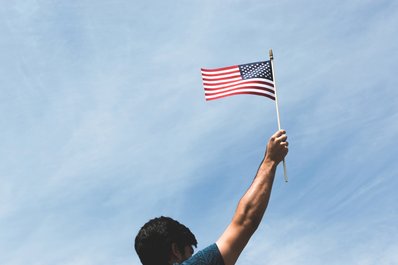 I am grateful for freedom. And to those who have made my freedom(s) possible. I am grateful I have the right to vote and worship God how I choose. I am grateful I got to marry who I chose. I am grateful I do not live in daily fear in or outside my home. And yet in the midst of all of my gratitude this July 4th, I am reminded of Frederick Buechner's words about peace in Wishful Thinking: "...we are homeless even so in the sense of having homes but not being really at home in them. To be really at home is to be really at peace, and there can be no real peace for any of us until there is some measure of real peace for all of us. When we close our eyes to the deep needs of other people, whether they live on the streets or under our own roof-and when we close our eyes to our own deep need to reach out to them-we can never be fully at home anywhere." I think the same can be said about freedom. Can there even be real peace without freedom? Will you join me this July 4th in asking the question, "Who is not free yet?" Who is not free to worship how they choose? Who is not free to marry who they choose to? Who lives in fear inside/outside of their home? Who has no voice in religious, political, and business institutions? It shouldn't take too long to identify at least one person if not an entire group of people. Then with the voice of the Holy Spirit and the entire tradition of the Holy Scriptures urging us on, let's take the next step and do something about it. Like those who gave their lives for our country's freedom. Then this will truly be "the land of the free and home of the brave."  Image found at www.rogerebert.com/reviews/gran-torino-2008 Image found at www.rogerebert.com/reviews/gran-torino-2008 Good Friday is coming in a few weeks and with it, some theology I simply cannot stand anymore. It's found in many worship songs like Jesus Paid it All, In Christ Alone, One Thing Remains (Your Love Never Fails) and more. It's called substitutionary atonement or penal substitution in theological language. And it's heard so often, you might even think it's the only show in town when it comes to explanations and understandings of the cross. Richard Rohr, writes in Eager to Love: The Alternative Way of Francis of Assisi, “For the sake of simplicity and brevity here, let me say that the common Christian reading of the Bible is that Jesus 'died for our sins'— either to pay a debt to the devil (common in the first millennium) or to pay a debt to God the Father (proposed by Anselm of Canterbury [1033–1109] and has often been called 'the most unfortunately successful piece of theology ever written')..." I could not agree more. No matter how sweet sounding the music, the image of God portrayed by such lyrics is a petty, powerless and/or blood-thirsty tyrant requiring some kind of payment or transaction before those He's created can be forgiven, loved, and rescued from eternal damnation. There are lots of problems with this theory. One major problem is that if we read the Hebrew Scriptures, like the Psalms and Prophets, we discover a long-suffering God who was forgiving and willing to forgive long before the cross occurred. Rather than a belief that Jesus' death on the cross was necessary to change God's mind about us, we can see how Jesus' life and death invited us to change our minds about God. Jesus was simply following in his Father's footsteps of relentless, sacrificial love. I have a problem with lyrics and theology that proclaim the opposite. Given this theology is taught through song and sermon in many churches (I taught it years ago as a youth pastor!), we're not apt to actually stop and think through it ourselves. It took me a while to admit that something seemed "off." There would be songs that seemed fine up until the "wrath" or "debt paid" lyrics showed up affecting the whole song. As I questioned this dominant cultural voice in American Christianity, I realized there were others experiencing the same internal dissonance. I also discovered there were other views about the crucifixion (always have been) besides substitutionary atonement. And that one no longer represents my viewpoint... The movie, Gran Torino, on the other hand does. Spoiler alert, if you haven't seen it and want to, you may want to stop reading, go watch it and come back later. And be aware, there's violence (although let's be honest, there has to be if drawing any kind of connection between it and Good Friday). Back to the movie, I did not see it coming, the ending of Gran Torino. In fact, I imagine I got a taste of being stunned the way the disciples might have been stunned on that Good Friday long ago...they simply never saw it coming. Yet the Gospels tell us Jesus did (and so did Clint Eastwood). If you saw the movie but cannot remember the ending, go check out a Youtube clip of the end. The final scene is so rich in symbolism, I'm not even going to get into all of it (plus it would take away from your own disturbances and observations). All I know is that Gran Torino gave a pretty good glimpse of my view of Jesus' death on the cross in less than 5 minutes. A quick overview of the movie...gruff Walt Kowalski (played by Clint Eastwood) is a recently widowed Korean vet. He's fairly estranged from his own family when he gets drawn into the drama of his Hmong neighbors. Young Thao tries to steal Kowalski's Gran Torino after being pressured by his cousin to join the neighborhood gang. You know that Eastwood is not going to let that happen! This event leads to Kowalski developing a relationship with the family and getting an inside look at the cycle of violence and poverty experienced by the Asian community in his neighborhood. He sees how his well-intentioned advice to Thao to get a decent job and stay away from the gangs simply doesn't work, no matter how hard Thao tries, he and his sister cannot escape the brutality and injustice. It requires something more to liberate Thao and his sister. And that's where we start seeing Kowalski's single-minded intensity and there's no mistaking he is planning something. What he's planning, we have no idea. Although we know something is about to take place when one night he shows up at the house where the gang members hang out and begins to yell in order to provoke them. One by one they come out with guns drawn. We're expecting "an eye for an eye" moment thinking Eastwood will whip out a gun and give them the justice they deserve by picking them off all in a row. What we're not expecting from the foul-mouthed Kowalski is "Greater love hath no man than this, that a man lay down his life for his friends." (John 15:13) And yet he does. And on purpose. His stunning and creative act of solidarity and sacrifice releases Thao and his sister from the cycle of violence. They were "saved" by his blood. In a perfect world, the prison system would reform the perpetrators and they'd be "saved by his blood," too. It's not a perfect world and Walt doesn't rise again in three days, so there's only so far the comparisons can go but I think it's worth noting the image of Christ found in Walt's sacrifice. First, let's admit that Walt himself could be a stumbling block for some. In which case, I ask us to ponder what one who "walks in the way that leads to Life" really looks like. Is it being a nice, moral citizen who tries to avoid or point out sin (but can have a habit of ignoring the cycles of violence and systemic injustice in his own "neighborhood")? Or might one resemble Walt, a crass, politically incorrect "sinner" who not only notices the violence and injustice, but steps into a Christ-like path which will set his neighborhood free? Setting his face like flint, he walks right onto that sidewalk for an act of love which will rescue his neighbors from being held captive by a cycle of violence they are powerless against. Sound familiar? Jesus knew his message would provoke the authorities. He knew that such ire would inevitably turn him into a scapegoat (a person or people group on whom we unfairly pour out our wrath, making them "pay"). He knew it is human nature to look for a scapegoat. So much so, it becomes a religious necessity for nearly every culture (some even beating literal goats to death as the name suggests)! One can see how Jesus' bold message about what to do with friends and enemies does not fit, but in fact destroys both the necessity for and violent cycle of sinful and superstitious scapegoating. Bigger isn't better in Jesus' view (even when it comes to God). Being the stronger bully or in the bully's gang never leads to the kind of life Jesus invites, it only adds fuel to the cycle of vengeance. However, many Christians have no problem with this because the image of God passionately sung about is a fickle, vengeful one (and remember, we become like the God we worship). Plus if we agree that Jesus paid it all, we're safely on the winning side. However, in the cycle of violence, there is no winning side. In a stunning reversal of what we would expect from a winning "savior," Jesus chooses solidarity with the suffering of the scapegoat and dies. Jesus knew the pull of scapegoating loomed large. After his resurrection, knowing some of his disciples had a propensity for zealous anger (once they knew they were safely on the "winning team"), he headed off any plans to go after the ones who had killed him. The Gospel of John tells us Jesus meets his disciples in the room they were hiding in, breathes on them, tells them to receive the Holy Spirit then talks to them about forgiveness (20:21), a topic he talked to them about at the Last Supper and even voiced from the cross. It seems the disciples had a choice (and so do we). Be chained to the cycle of violence or have hearts and minds freed up to carry out the mission Jesus began. What is that mission?--a completely different way of being in the world (which includes the religious one!). It's the subversive, dangerous and life-giving way of loving God and our neighbors (whether they be Hmong, Muslim, Mexican, Irish, disabled, poor, or LGBT+) as we love ourselves (which includes parts of ourselves we like and parts we'd like to treat as scapegoats). It's that kind of love that frees. It's that kind of love that Abraham Lincoln, Martin Luther King, Jr., the young Palestinian girl Malala Yousafzai, and Walt Kowolski knew would cost them something, perhaps even their lives. If someone wants to write a song about that, I'll gladly sing it.  If you're anticipating tension around the table this year, here are 7 ways to invite (or perhaps choose) life to be your table companion. Begin by offering yourself hospitality. When we welcome every part of ourselves, we lift the burden of demanding others to give us what they may neither be willing nor able to give. So in your mind's eye, give yourself the look of approval or hug of acceptance you need! Do away with the “kids table” this year. Allow them to join the “grown ups.” Sure, they may spill the gravy, but their simple presence may open our eyes to the Kingdom and hand us the keys. If you're hosting, you'll find it's worth the messy table cloth. Let humor pull up a chair. Here's where kids at the table are helpful once again! When it's not at the expense of anyone else, laughter can be common ground (like enjoying good food). Keep Jesus' meal of thanks in mind. Around Jesus' supper table was a member of the radical Zealot party, a tax collector, some fishermen, a beloved disciple, a doubter, a hot-head and a betrayer...if these were Christ's table guests, what do we expect? Remember the broken Body of Christ. Breaking bread together can be a tangible reminder that we follow a God who works through brokenness. Just as love flowed through the broken body of Jesus, love can flow through each of us, the broken Body of Christ. Be on the lookout to receive love from a broken person and to be a broken person through whom love shines through. Leave or give others permission to leave. Jesus gave permission to one of his followers to leave the table. Rather than continue the charade of authenticity he said, “What you are about to do, do quickly” (John 13:27). In his case, he was about to betray Jesus. Did Jesus withdraw his love in that moment? No! He never stopped loving him, but he recognized when Judas was putting on an act. You or others may be itching to be somewhere else, unable to truly be present (in a life-giving way). No need to force yourself or others to hang around in misery (or make others miserable)! Know that love is messy. Much messier than spilled gravy. The love of Christ isn't a pecan pie-gooey kind of love. It requires healthy boundaries and sacrifice. Both may not look or feel like love to you or others in the moment. That's okay, the book of Luke (12:51-53;18:29-30) warns that Jesus-followers must be prepared for family relationships to not reflect a Norman Rockwell painting. The path of and toward life rarely looks like it. But it's worth the journey! A prayer for all who are gathering at a table this week: God, may we welcome our family, friends, neighbors, and even strangers to the table as we welcome ourselves. May we recognize that not only do we have brokenness in common but we can find common ground in food and laughter. May we not shy away from awkwardness or tension but enter in with childlike curiosity. Give us discernment. Remind us of the permission we can give or receive to leave (without shame or shaming, without blame or blaming) on behalf of love. Thank you for the ways You join us at the table disguised as our own lives. May Your love be present in and with us as we break bread together. In Christ's Name, Amen. |
AuthorKasey is a scarf, ball and club juggling spiritual director just outside of Nashville, TN. Play helps her Type-A, Enneagram 1 personality relax, creating space for poetry and other words to emerge. She also likes playing with theological ideas like perichoresis, and all the ways we're invited into this Triune dance. Archives
January 2024
Categories
All
|
By clicking “Sign up for E-News” I consent to the collection and secure storage of this data as described in the Privacy Policy. The information provided on this form will be used to provide me with updates and marketing. I understand that I may modify or delete my data at any time.
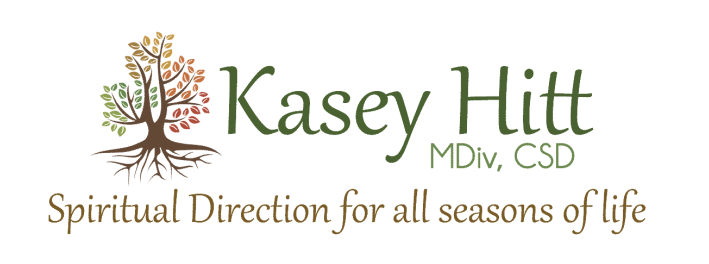
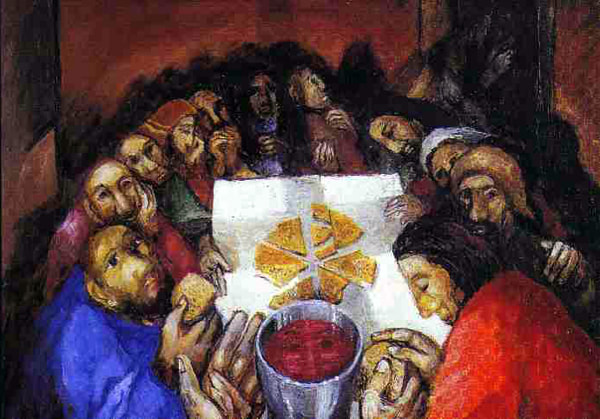
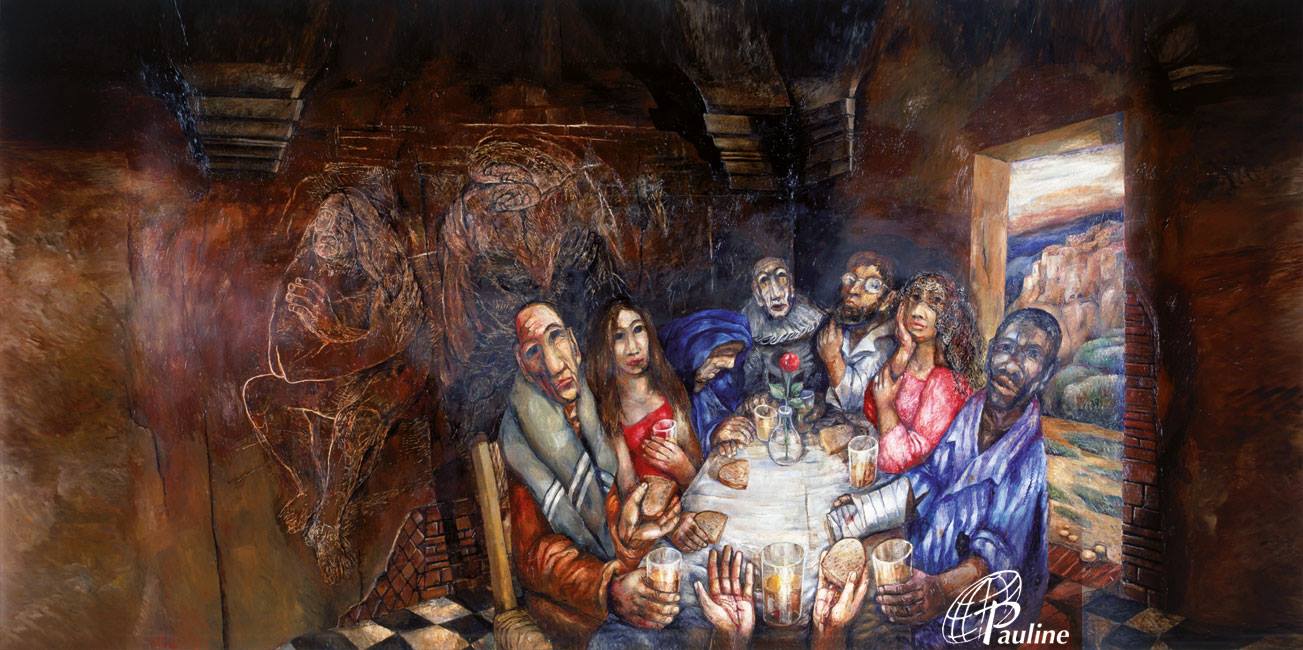
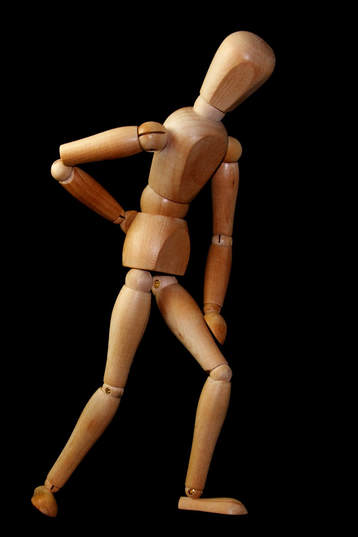
 RSS Feed
RSS Feed

